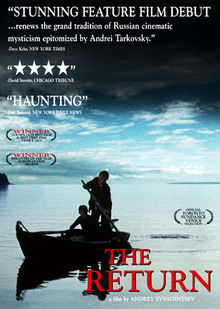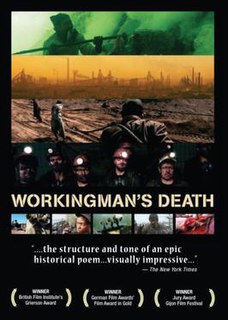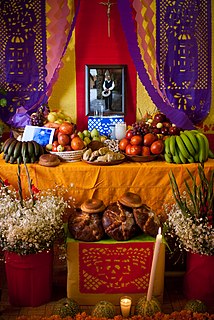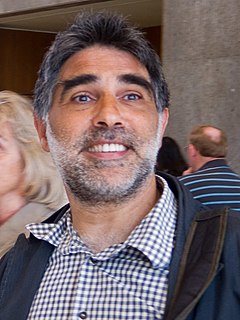| Location | Mexico City |
|---|---|
| Founded | 2004 |
| Hosted by | Cinemax |
Mexico City International Contemporary Film Festival, or FICCO (Festival Internacional de Cine Contemporáneo) for its initials in Spanish was an annual film festival founded by film producers Michel Lipkes and Paula Astorga in February 2004. [1] The festival ran for seven years, ending in 2010 and reopened in 2014 for Narrative only Film.

Spanish or Castilian is a Western Romance language that originated in the Castile region of Spain and today has hundreds of millions of native speakers in the Americas and Spain. It is a global language and the world's second-most spoken native language, after Mandarin Chinese.
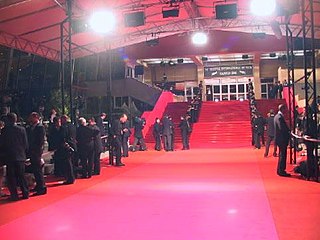
A film festival is an organized, extended presentation of films in one or more cinemas or screening venues, usually in a single city or region. Increasingly, film festivals show some films outdoors. Films may be of recent date and, depending upon the festival's focus, can include international and domestic releases. Some festivals focus on a specific film-maker or genre or subject matter. A number of film festivals specialise in short films of a defined maximum length. Film festivals are typically annual events. Some film historians, including Jerry Beck, do not consider film festivals official releases of film.
Contents
- Awards
- FICCO-Cinemex Award for Best Narrative Film
- FICCO-Cinemex Award for Best Documentary Film
- Best Latin American Film
- FICCO-Movie City Award for Best Debut Film
- Pfizer Human Rights Award
- Exxonmobil Award for Best Female Director
- Best Mexican Digital Film
- Fipresci Award for Best Mexican Documentary Film
- See also
- References
It quickly become one of the most important film festivals in Latin America. It was hosted by Cinemex, one of the two dominant movie theater chains in Mexico. It lasted two weeks and programmed sections on documentary features, fiction, worldwide premieres, retrospectives, and global tendencies in cinema. The jury was composed of important figures of the film industry worldwide.

Latin America is a group of countries and dependencies in the Western Hemisphere where Romance languages such as Spanish, Portuguese, and French are predominantly spoken; it is broader than the terms Ibero-America or Hispanic America. The term "Latin America" was first used in an 1856 conference with the title "Initiative of the America. Idea for a Federal Congress of the Republics", by the Chilean politician Francisco Bilbao. The term was used also by Napoleon III's French government in the 1860s as Amérique latine to consider French-speaking territories in the Americas, along with the larger group of countries where Spanish and Portuguese languages prevailed, including the Spanish-speaking portions of the United States Today, areas of Canada and the United States where Spanish, Portuguese and French are predominant are typically not included in definitions of Latin America.

Cinemex is a Mexican chain of cinemas.

Mexico, officially the United Mexican States, is a country in the southern portion of North America. It is bordered to the north by the United States; to the south and west by the Pacific Ocean; to the southeast by Guatemala, Belize, and the Caribbean Sea; and to the east by the Gulf of Mexico. Covering almost 2,000,000 square kilometres (770,000 sq mi), the nation is the fifth largest country in the Americas by total area and the 13th largest independent state in the world. With an estimated population of over 120 million people, the country is the eleventh most populous state and the most populous Spanish-speaking state in the world, while being the second most populous nation in Latin America after Brazil. Mexico is a federation comprising 31 states and Mexico City, a special federal entity that is also the capital city and its most populous city. Other metropolises in the state include Guadalajara, Monterrey, Puebla, Toluca, Tijuana and León.
In 2007 it programmed documentary retrospectives on Peter Watkins and Peter Whitehead, and a retrospective on Robert Bresson and Pedro Costa. [1]
Peter Watkins is an English film and television director. He was born in Norbiton, Surrey, lived in Sweden, Canada and Lithuania for many years, and now lives in France. He is one of the pioneers of docudrama. His films present pacifist and radical ideas in a nontraditional style. He mainly concentrates his works and ideas around the mass media and our relation/participation to a movie or television documentary.
Peter Lorrimer Whitehead is an English writer and filmmaker who documented the counterculture in London and New York in the late 1960s. He is also known for his work as a director of promotional film clips including a version of "Interstellar Overdrive" for Pink Floyd and several clips for The Rolling Stones.
Robert Bresson was a French film director. Known for his ascetic approach, Bresson contributed notably to the art of cinema; his non-professional actors, ellipses, and sparse use of scoring have led his works to be regarded as preeminent examples of minimalist film.
